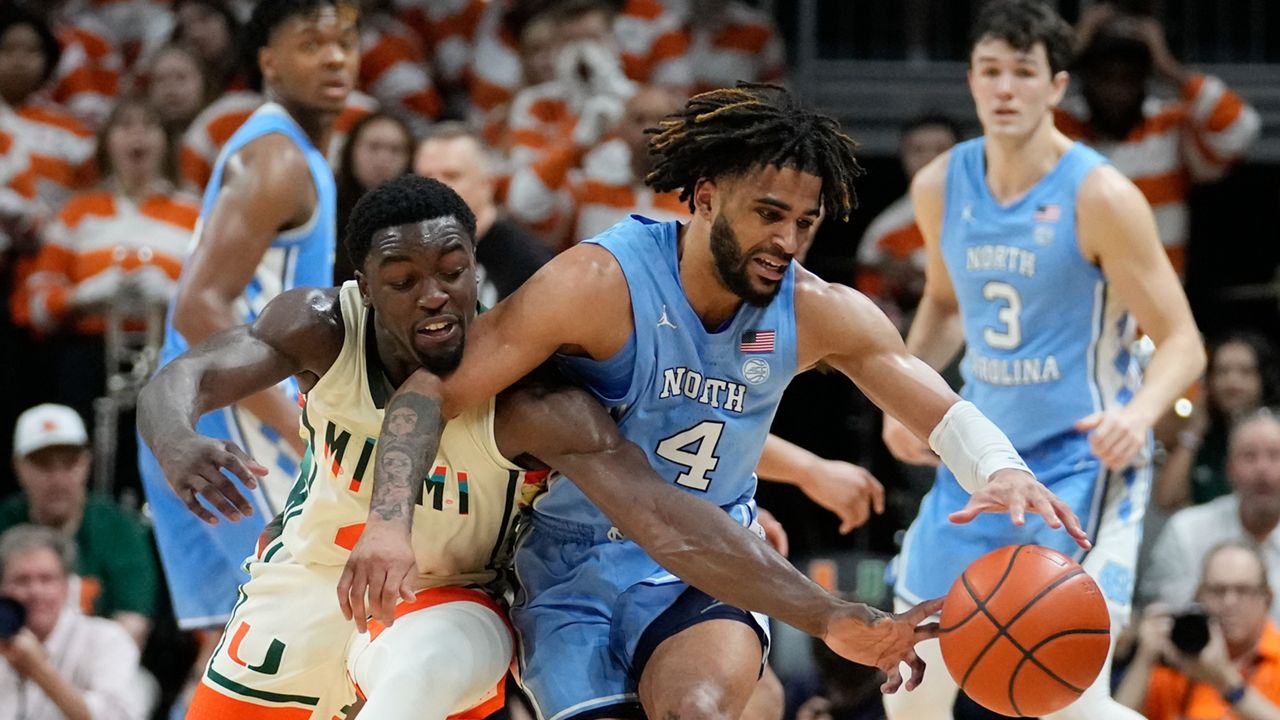CHAPEL HILL, N.C. (AP) — RJ Davis accomplished enough in four years at North Carolina for his jersey to eventually earn a place among the honored numbers in the Smith Center’s rafters for the blueblood program.
Yet he’s still here.
“With five years, I know some people may say, ‘Oh, you need to go get a job now,’” Davis said with a chuckle.
It’s the last ride for Davis — the lone returning Associated Press first-team men’s All-American from last season — and most players who gained an extra year of eligibility amid the COVID-19 pandemic, which largely cycles out of men’s and women’s basketball this season. It has been the most unusual of recent landscape-shifting changes in college sports, one that temporarily replaced a bedrock tenet of athletes having a four-season run with a salve for competing amid empty arenas, campus bubbles and endless nose-swab testing during the 2020-21 season.
Its impact has been massive. Rules arriving concurrently allowed players to move freely between schools through the transfer portal and cash in on fame through name, image and likeness (NIL) activities, a blended enticement to stick around college rather than leaving to chase potential professional careers. That in turn made rosters older, with coaches preferring veteran additions to freshmen after recent examples of how experience wins in March.
Fifth-year players start this year in the spotlight, headlined by Davis with the ninth-ranked Tar Heels and fellow preseason AP All-Americans Hunter Dickinson of top-ranked Kansas, No. 2 Alabama’s Mark Sears, No. 10 Arizona’s Caleb Love — who started his career alongside Davis at UNC — and No. 11 Auburn’s Johni Broome.
Davis is the only one of that group to stay at one school.
“I think we’re in a time now where having experienced players and players coming back for another year has brought college basketball — in my eyes at least — back to life,” Davis said in an AP interview. “It gives more of like a story behind it.
“You have guys that have been one-and-dones, but not a lot of people talk about the guys that stayed for more than two years. I feel like their stories are something that need to be told as well. And I love that.”



